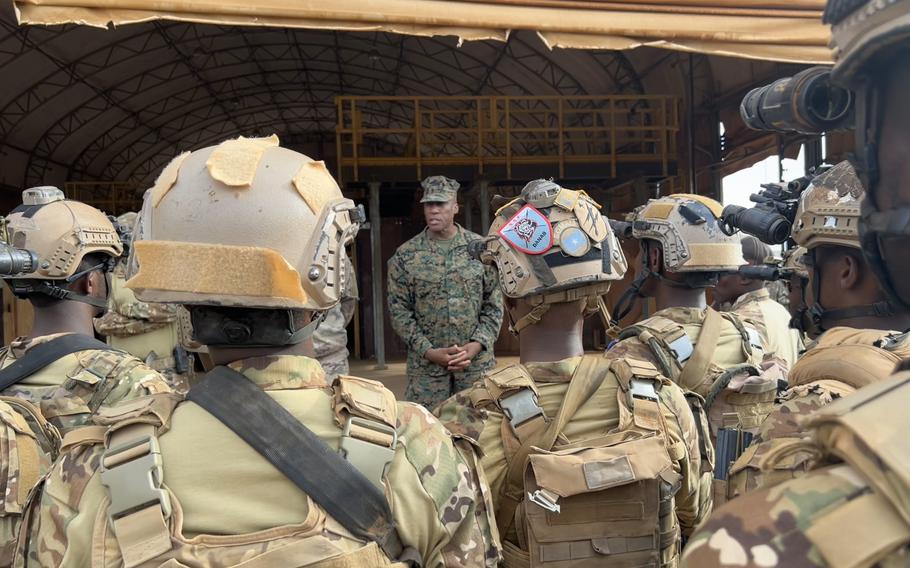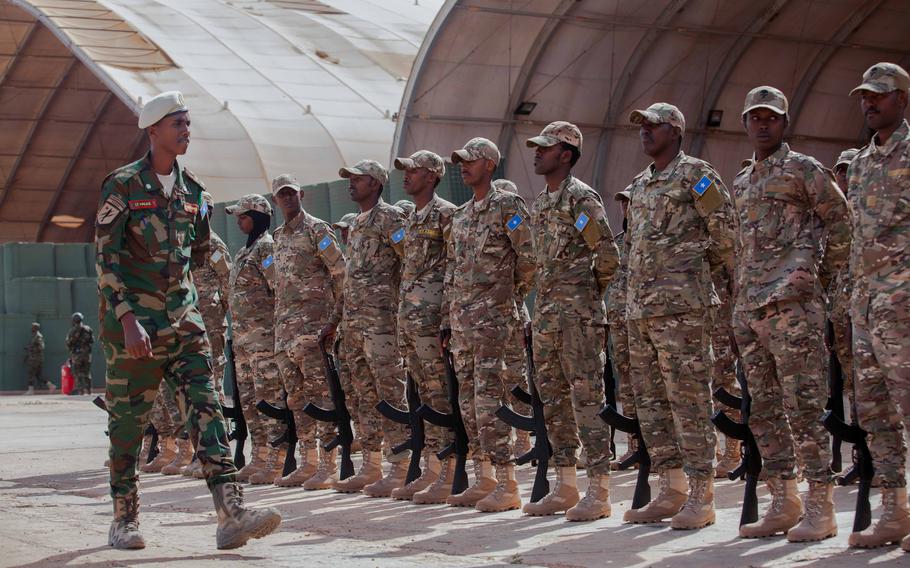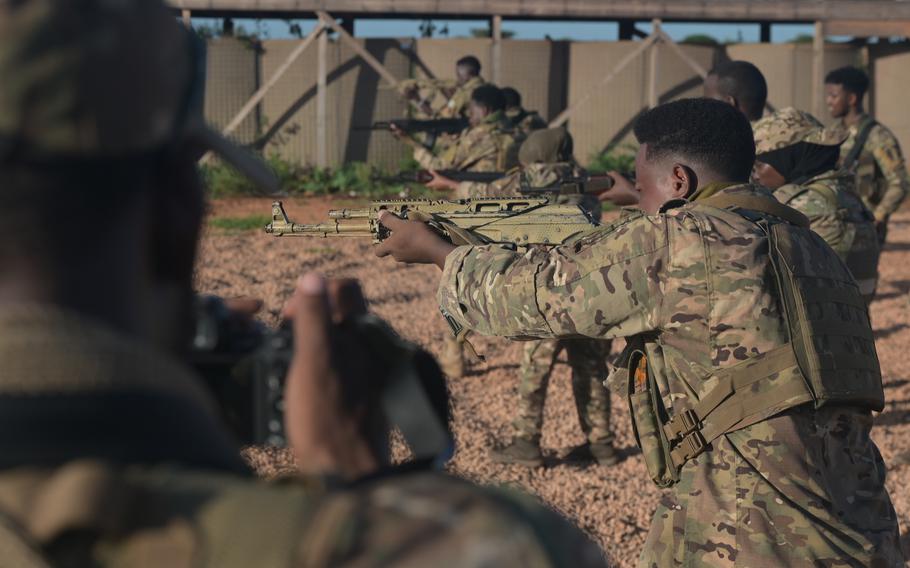
Marine Corps Gen. Michael Langley, head of U.S. Africa Command, talks with Somali troops in Mogadishu on Sept. 10, 2024. U.S. troops returned to Somalia in 2022 in an advisory capacity, two years after then-President Donald Trump pulled hundreds of U.S. service members out of the country. (Bobby Dixon/U.S. Navy)
STUTTGART, Germany — One of President-elect Donald Trump’s last actions during his first term was pulling all U.S. forces out of Somalia, a move that could be back on the table in a second term that carries the potential for a broader scaling-back of military activities on the continent.
Of all of U.S. Africa Command’s missions, its campaign in Somalia is likely to come under a microscope soonest, said J. Peter Pham, who served as special envoy to Africa’s volatile Sahel region during Trump’s first term.
“I would expect that President Trump will want to reverse course and restore things to where he intended at the end of 2020,” Pham said Sunday.
Pham said current conditions in Somalia, where a decades-long conflict between Islamic militants and a weak central government continues to play out, justify pulling out U.S. forces once again.
“Quite frankly, as the corruption of even allegedly elite units like Danab has underscored, we do not have an effective partner in Mogadishu, and there are no U.S. national security interests that justify risking American treasure — much less American blood — in Somalia that cannot be handled offshore or from nearby bases,” Pham said.

Somali soldiers in the elite Danab unit stand in formation during a graduation ceremony on Oct. 9, 2024. American forces in Somalia have prioritized advising the unit in their fight against the Islamic militant group al-Shabab. (Darryl Padgett/Special Operations Command Africa)
Headquartered in Stuttgart, AFRICOM has several hundred troops positioned in Somalia, where they serve as advisers to local forces. There’s a special focus on the Danab unit, which the U.S. military has touted as one of Somalia’s most capable forces.
President Joe Biden in 2022 directed U.S. personnel back to Somalia on a continuous basis, reversing Trump’s order in late 2020 that resulted in some 700 troops being moved out of the country.
Biden’s decision came in the wake of criticism from then-AFRICOM commander Gen. Stephen Townsend, who said the rotational approach that replaced the full-time presence in Somalia amounted to “commuting to work” and allowed insurgents to gain ground.
Trump’s move out of Somalia was something he had sought to do earlier in his term. Former Defense Secretary Mark Esper, in his memoir about his time in the Trump administration, said Trump was skeptical about the AFRICOM mission as a whole.
Trump “didn’t see much value in having any Americans, whether they be military personnel or diplomats, based anywhere on the continent,” Esper wrote in his book, “A Sacred Oath.” “The bottom line was that Trump wanted out of Africa completely, and Somalia now seemed to be the start point.”
The Pentagon under Trump is expected to make China more of a focal point, which means that resources could be pulled from lower-priority missions and sent toward Asia.
Elbridge Colby, whom Trump has nominated to serve as the Pentagon’s undersecretary of defense for policy, has argued that the military is spread too thin and must pivot more sharply to the Pacific.
In the case of Africa, al-Shabab has proved resilient despite an international effort to help Somalia’s government counter it. Meanwhile, AFRICOM has raised concern about other militants expanding their reach in parts of western Africa.
So far, however, such groups have not demonstrated an ability to strike outside the African continent, raising questions about how significant of a threat they pose to the U.S. homeland.
Esper, writing about security in Africa, said some combatant commands during his tenure were prone to inflate threats to get more military assets.
“Some couldn’t accept their priority in the bigger scheme of things, and a few would stretch the risk assessment to justify their demands,” Esper wrote.
How such threat assessments could factor into Trump’s approach to AFRICOM, formed nearly 20 years ago when countering Islamic militant groups around the world was a Pentagon focal point, isn’t yet clear.
Concerns about China’s growing influence and large trade advantage in Africa also could influence Trump’s actions.
As for Somalia, Pham said the current U.S. approach needs an overhaul.
“At the very least, a complete blank slate review of U.S. policy toward the Somali failed state should be undertaken before investing any more American resources,” Pham said.

Soldiers from Somalia's Danab unit train in Kismayo, Somalia, on April 24, 2024. American forces in the country have prioritized advising the Danab in their fight against the Islamic militant group al-Shabab. (Joshua DeGuzman/Special Operations Command Africa)